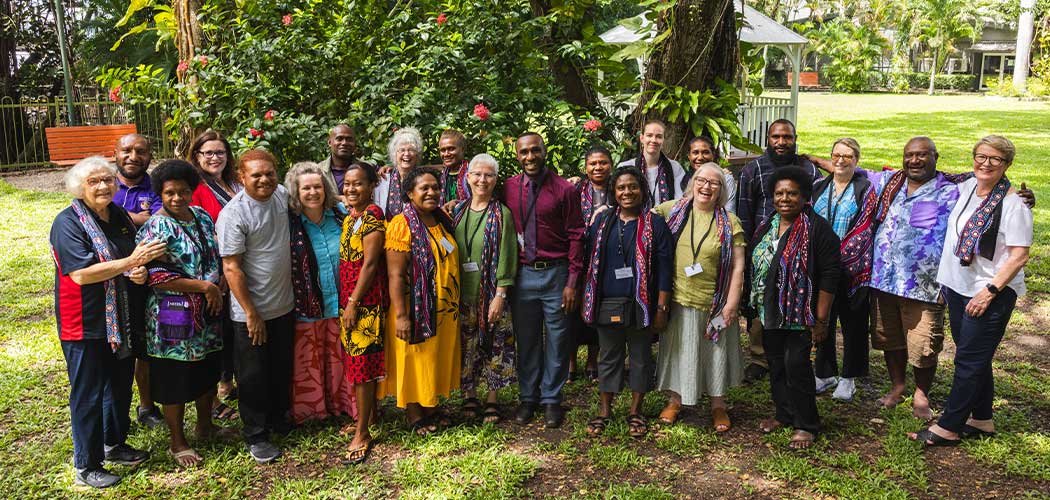A Buddy Program between Australian and Papua New Guinean midwives is seeing the transference of skills and knowledge to help improve maternal and neonatal outcomes in both countries.
Papua New Guinea is one of Australia’s nearest neighbours, but the experience of pregnancy and birth for women in PNG is often far different, with one of the highest preventable maternal and neonatal deaths in the world.
In a joint collaboration, the Rotary Club of Morialta (South Australia) and The Rotary Club of Port Moresby (PNG) in partnership with PNG Midwifery Society and the Australian College of Midwives have developed the Buddy Leadership program, now in its fifth year.
Seven Australian midwives travelled to Port Moresby, PNG in April 2025, and along with 14 local midwives, attended the six-day workshop focusing on leadership and advocacy.
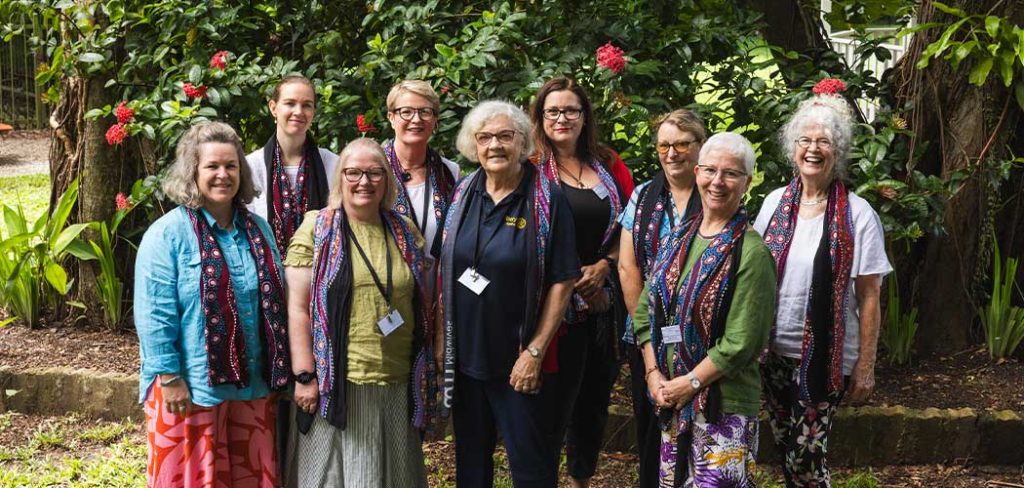
Reciprocal leadership and partnership
The Buddy Program is not about teaching clinical skills, but about building confidence and leadership among midwives from both countries, enabling them to advocate for, and create positive changes in their communities, said lead facilitator Helen Hall, a Rotary member and Professor at Federal University.
“Every day, about 800 women die around the world and the number of babies is more. Around 95% of these deaths happen in low resource countries and it’s preventable.”
The Buddy Program helps build confidence both in the PNG midwives and Australian midwives to bring about positive change, she said.
“They’re coming in as partners. It becomes evident very quickly that the PNG midwives have incredible skills that the Australian midwives maybe don’t have. But the Australian midwives have had opportunities, and so between them, they both bring something to the party.”
During this time, the seven Australian midwives are allocated two buddies, who they work with through varied means of communication over a 12-month period in a maternal and child health project of their choosing. They were in the field meeting with the local midwives in training, visit Port Moresby General Hospital to meet with pregnant and postpartum mothers and babies and spend time with past graduates of the program to demonstrate their projects and successes beyond the training.
Personal experience
Tasmanian midwife Yvette Story, who has more than 30 years’ experience as a midwife, said the experience in April was a career highlight.
“The thing that appealed to me about this program as opposed to others, is that it’s actually connecting with midwives on the ground in PNG and making real connections with those midwives.
“It wasn’t just for the intense week that we were there doing the leadership course, but the ongoing connection afterwards. It just fills your cup. You come away so inspired with midwifery and global midwifery.
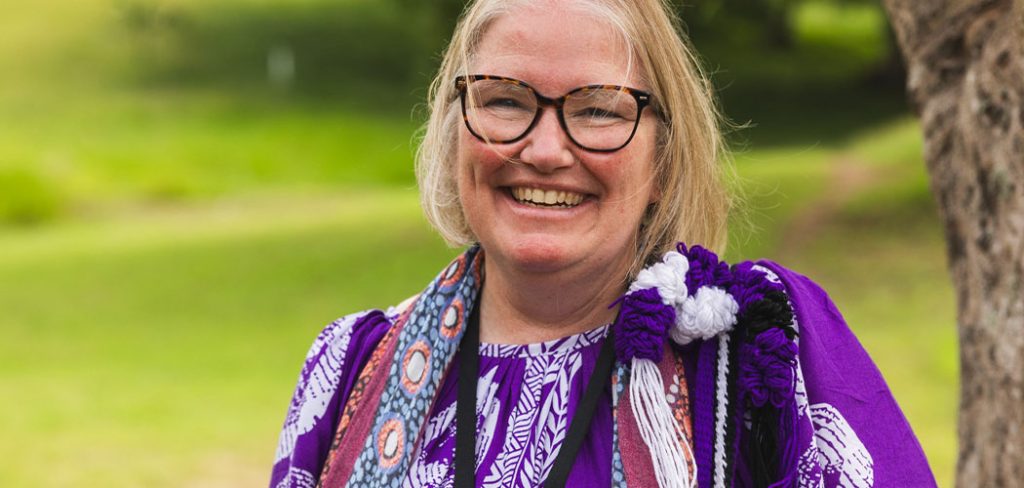
“To be with the group of midwives that I was with was so inspiring – there was academics, homebirth midwives, we were a scattering of midwives with lots of different experience in different settings but had one common goal – that we loved midwifery and were there to be with PNG midwives and learn from this experience.”
Yvette has worked within several rural and remote settings in Australia, including Community Controlled Aboriginal Organisations which provided some understanding of working with midwives and women with limited resources.
“Maternal and child mortality and morbidity in PNG is nothing that we can even comprehend, it has one of the highest maternity mortality rates within the world.
“They don’t have the outcomes that they would like because they haven’t got the resources that they require, but they make the most of what they’ve got to birth babies by phone torch light or torches when they don’t have resources, when there’s no power, when there’s no lights.”
“In remote health centres, midwives across PNG will be using WhatsApp supporting someone who may not have experienced the situation that they’re currently in and they will send them advice. They are working with what they have and the technology that they have to support each other. It is admirable to see what midwives can do in the face of adversity, how we can come together and utilise tools that were probably meant for something else.”
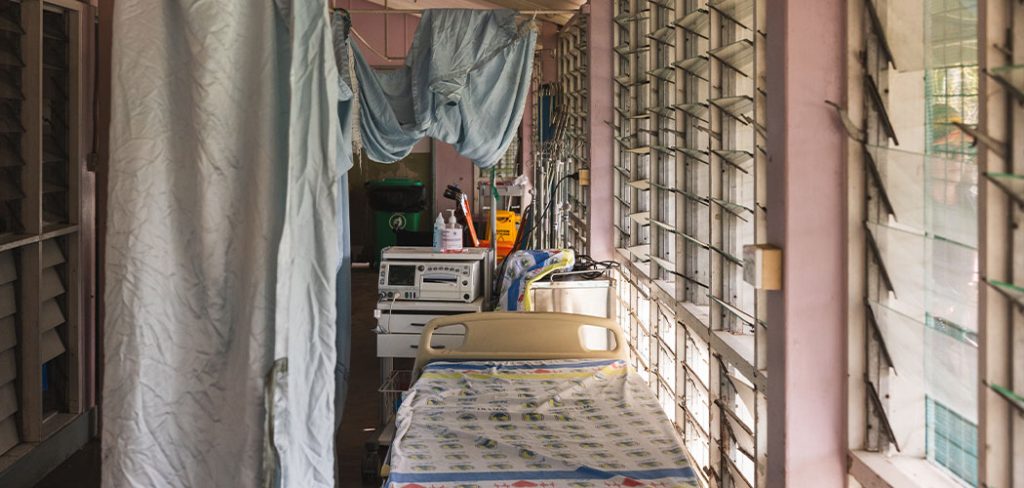
Projects
Yvette’s two PNG buddies Patricia and Jacobeth work in the Highlands in PNG and their project for the program was to work on the management of postpartum haemorrhages and managing labour.
“Because they work with a lot of untrained health workers, their projects are to look at how to provide some safety and awareness for the people that they care for around this.”
Other projects identified by PNG midwives during the last group included organising placenta pits for safe and hygienic disposal of placentas post-birth and obtaining solar lights for healthcare clinics with no lighting at night.
Yvette, Patricia and Jacobeth will co-present their project at the next statewide ACM conference in Hobart in November.
“Despite all the challenges that they have, they are happy and probably the most passionate and satisfied people I’ve met; they do their best and are so positive.
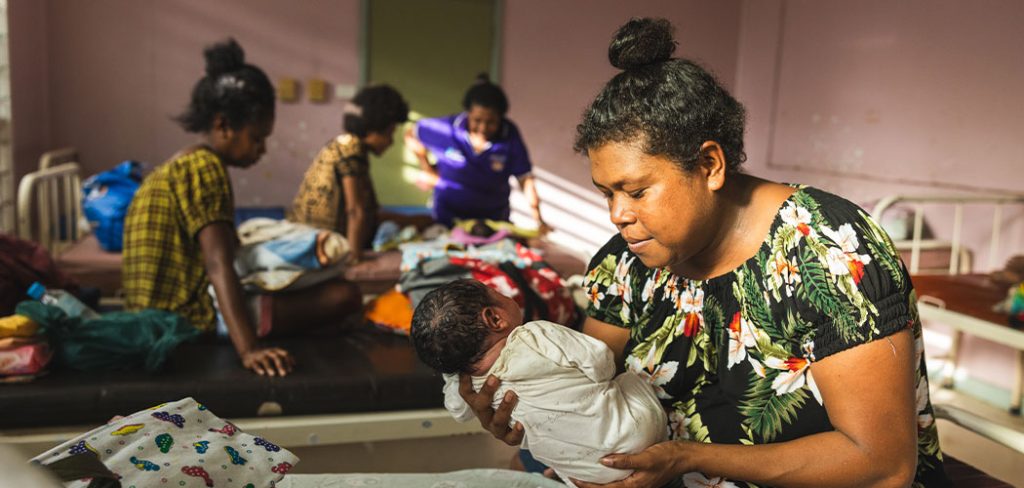
“The projects they have chosen they know are going to make small changes to improve healthcare for women in Papua New Guinea,” said Yvette.
The appreciation the Australian midwives were given, and the generosity of the PNG midwives was overwhelming, said Yvette.
“It brings immense gratitude for what you have. The midwives that I went with from Australia, and the connections we made in PNG – I will never have these connections with anyone else.”
After the project is complete in 2026, 52 PNG midwives will have their leadership skills upskilled, and 34 Australian midwives will have gone through the program bringing home a wealth of knowledge and care. The only cost of the program to participants is their time. All travel, accommodations, and food is funded by Rotary (for both Australian and PNG midwives).
For more information on the Rotary midwife initiative here


